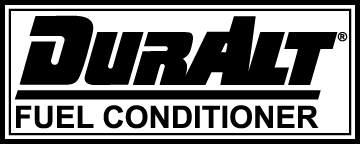How to Accurately Calculate Your Fuel Efficiency
- Rich Lieber
- Jun 23, 2025
- 4 min read
Understanding your vehicle's fuel efficiency can save you money, reduce your carbon footprint, and enhance your driving experience. This guide will explore the best methods to accurately calculate your fuel efficiency, ensuring you get the most out of each tank.
Why Is Fuel Efficiency Calculation Important?
Fuel efficiency is not just a buzzword tossed around in discussions about cars; it's vital for any vehicle owner. Knowing how efficiently your vehicle uses fuel helps you budget for trips, understand vehicle performance, and identify when something may be wrong with your car. Poor fuel efficiency can indicate mechanical problems or poor driving habits.
Many drivers assume that fuel efficiency only matters during high gas prices. However, regardless of fuel costs, ensuring optimal efficiency is important for reducing environmental impact.

Fuel Efficiency Calculation Steps
Calculating your vehicle's fuel efficiency involves a few simple steps. Here’s how to do it:
Track Your Mileage: Reset your trip odometer or note the mileage on your odometer before you fill up.
Fill the Tank: Fill your gas tank completely. Make sure you are filling it to the same level each time to ensure accuracy.
Drive Normally: Drive your vehicle as you typically would until you need to refill again.
Fill Up Again and Note the Mileage: When you fill up for the second time, note the gallons used to fill the tank and the new odometer reading.
Perform the Calculation: Use the formula to calculate your fuel efficiency.
For example, if you drove 300 miles and used 10 gallons of gas, the formula would be:
Fuel Efficiency = Miles Driven / Gallons Used = 300 /10 = 30 miles per gallon (MPG)This basic method provides a clear picture of your vehicle's average fuel efficiency.

What is the Formula for Gas Efficiency?
The most common formula for calculating gas efficiency is straightforward:
Fuel Efficiency (MPG) = Distance Traveled / Gallons of Fuel Used
In this formula, "Distance Traveled" refers to the miles you've driven, and "Gallons of Fuel Used" is the amount of fuel you put into your gas tank from the last time you filled the tank.
You can also convert this calculation to liters per 100 kilometers (L/100km) if you're outside of the United States:
Fuel Efficiency (L/100km) = (Liters of Fuel Used )/ (Distance Traveled in kilometers) times 100
Knowing how to calculate fuel efficiency can help you monitor your vehicle's performance over time, leading to potential savings and insights into your driving habits.
Factors Affecting Fuel Efficiency
Various factors can impact your vehicle's fuel efficiency. Understanding these can help you optimize your driving for better MPG:
Driving Habits: Aggressive driving—like hard accelerations and quick braking—can reduce fuel efficiency by as much as 30% at highway speeds. Smooth driving will help maintain efficiency.
Vehicle Maintenance: Regular maintenance—like oil changes, air filter replacements, and tire rotations—can significantly impact fuel economy. A well-maintained vehicle runs more efficiently.
Tire Pressure: Under-inflated tires can reduce fuel efficiency. It's important to check your tire pressure regularly, as even slightly low-pressure tires can cause a noticeable decrease in MPG.
Load and Cargo: Carrying excess weight can also decrease fuel efficiency. Remove any unnecessary cargo from your vehicle to enhance performance.
Weather Conditions: Driving in adverse weather, like rain or heavy winds, can diminish fuel efficiency. Be mindful of the weather, as it can play a significant role in how much fuel your vehicle uses.
Understanding these factors will empower you to adjust your habits and optimize your vehicle for better fuel efficiency.

Technology and Fuel Efficiency
Technological advancements in vehicles have significantly enhanced fuel efficiency. Cars equipped with hybrid systems or electric motors often outperform traditional combustion engine vehicles in MPG. Features like automatic start-stop systems also help reduce fuel consumption in traffic.
Additionally, onboard computers can provide real-time feedback on driving performance. Some vehicles even come with apps or devices designed to analyze fuel efficiency and driving habits, suggesting improvements to save money at the pump.
For anyone looking to improve their vehicle's fuel economy, investing in a fuel-efficient car or utilizing technology can lead to long-term savings.
Some fuel treatments such as DurAlt® Fuel Conditioner are guaranteed to improve fuel efficiency. DurAlt® works at the molecular level forcing fuel molecules apart to allow more oxygen to complete the combustion process. You burn more of the fuel in your tank (that you have already paid for) instead of the unburned fuel from inefficient combustion going out the tailpipe of stack as emissions.
Real-World Application: How to Calculate Fuel Efficiency
To put your knowledge into practice, let’s take a hypothetical journey:
Imagine you fill your vehicle with 12 gallons of petrol for a road trip. You set off and travel a total of 360 miles before needing to refuel.
Step 1: You started with 0 miles on your trip odometer.
Step 2: At your next fill-up, you check that you used 12 gallons.
Step 3: Now, use the formula:
Fuel Efficiency (MPG)} = 360 miles /12 gallons = 30 MPG
This means your vehicle performed excellently during your trip, showing a fuel efficiency of 30 miles per gallon.
By learning how to calculate fuel efficiency accurately, you can apply this knowledge to various driving scenarios, ensuring efficient fuel usage and saving money in the long run.
By understanding how to accurately calculate your fuel efficiency along with the numerous factors that influence it, you can make informed decisions for better driving habits and vehicle maintenance practices. Equip yourself with this knowledge to enjoy a more eco-friendly and cost-effective driving experience. For thorough insights on how to calculate fuel efficiency, you might find this resource helpful: Calculate Fuel Savings.









Comments